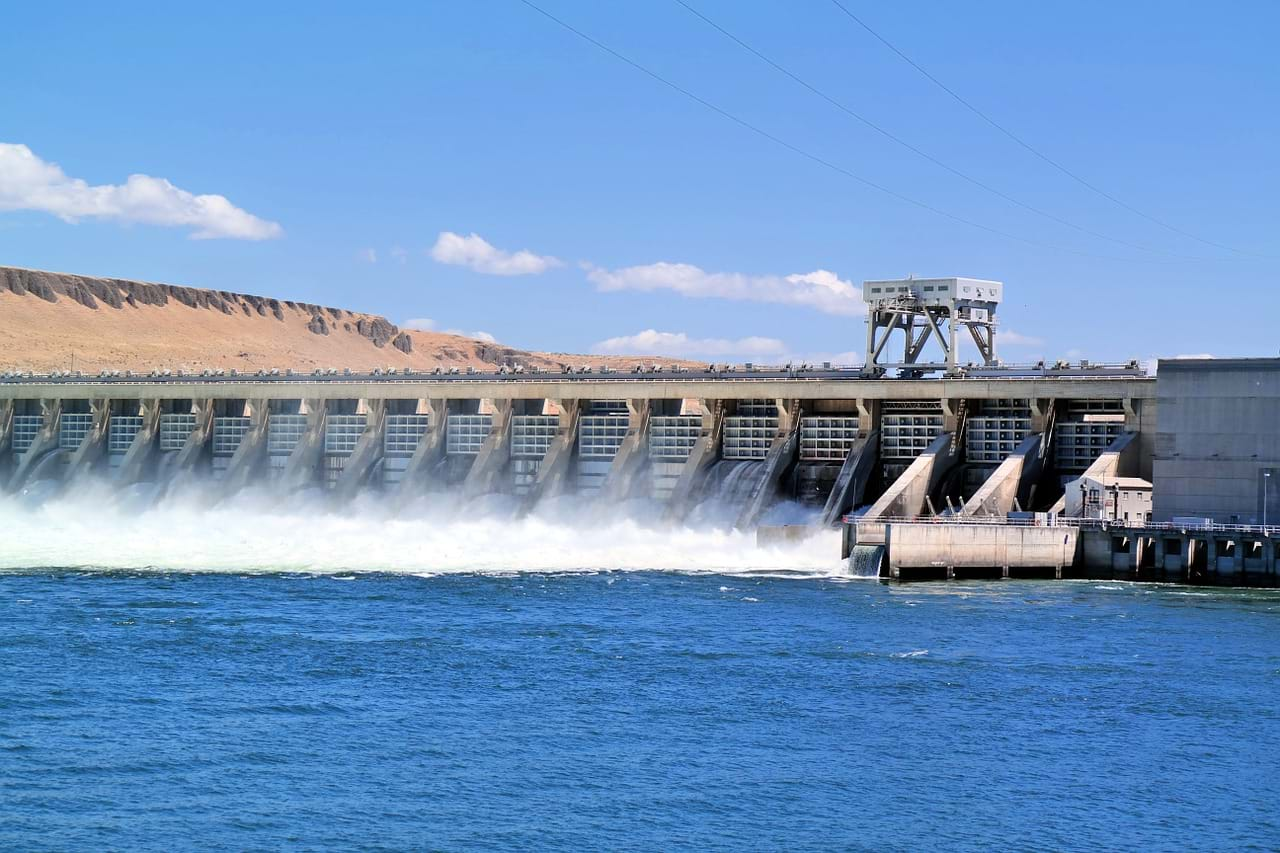
Summary
Creating sustainable energy is a challenge that engineers are helping solve to meet the world's need for clean and consistent power sources. This unit explores water as a renewable energy source. Students explore aspects of hydropower and its potential-to-kinetic energy transformation through water-based activities including designing, building and testing water waterwheels (water turbines).Engineering Connection
We are facing many issues with conventional energy sources (fossil fuels, hydropower, nuclear) that are leading engineers to develop innovative alternative renewable energy sources (wind, solar, biomass) to manage the impacts of energy production on the natural environment. Engineers design water turbines to produce electricity from water power (hydropower). Turbines look like pinwheels with angled blades connected to a gear box, which is connected to a generator. Engineers collect and analyze hydropower data to continually improve turbine technology and hydroelectric power plant design.
Subscribe
Get the inside scoop on all things Teach Engineering such as new site features, curriculum updates, video releases, and more by signing up for our newsletter!Unit Schedule
Suggested activity order:
More Curriculum Like This

Students learn and discuss the advantages and disadvantages of renewable and non-renewable energy sources. They also learn about our nation's electric power grid and what it means for a residential home to be "off the grid."

Hydropower generation is introduced to students as a common purpose and benefit of constructing dams. Through an introduction to kinetic and potential energy, students come to understand how a dam creates electricity.

Creating sustainable energy is a challenge that engineers are helping solve to meet the world's need for clean and consistent power sources. This unit explores wind as a renewable energy source. Students explore aspects of wind power including designing, building, and testing anemometers and wind tu...

Students learn how water is used to generate electricity. They investigate water's potential-to-kinetic energy transformation in hands-on activities about falling water and waterwheels. During the activities, they take measurements, calculate averages and graph results.
Copyright
© 2020 by Regents of the University of ColoradoLast modified: December 2, 2020






User Comments & Tips